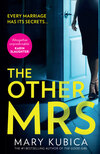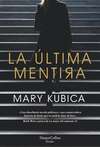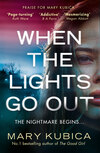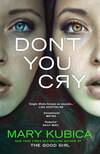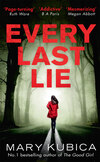Kitabı oku: «The Other Mrs», sayfa 6
SADIE
I’m sitting on the floor in the lobby of the clinic. Before me is an activity table, the kind meant to keep kids entertained while they wait. The dark carpet beneath me is thin and cheap. It’s unraveling in spots, with stains that blend into the nylon so you wouldn’t see them unless you were as close to it as I am.
I’m cross-legged on the floor, sitting on the side of the activity table that faces a shape sorter. I watch on as my hand drops a heart-shaped block into the appropriate opening.
There’s a girl on the other side of the table. At first glance, she looks to be about four years old. She wears a pair of crooked pigtails. Strands of blond hair have come loose from the elastics. They fall to her face, hang into her eyes where she leaves them be, not bothering to shove them away. Her sweatshirt is red. Her shoes don’t match. One is a black patent leather Mary Jane and the other a black ballet flat. An easy enough mistake to make.
My own legs have begun to ache. I unknot them, find a different position to sit in, one better suited for a thirty-nine-year-old woman. The waiting room chair catches my eye, but I can’t rise from the floor and leave, not yet, because the little girl across the table is watching me expectantly.
“Go,” she says, grinning oddly, and I ask, “Go where?” though my voice is strangled when I speak. I clear my throat, try again.
“Go where?” I ask, this time sounding more like myself.
On the floor, my body is stiff. My legs hurt. My head hurts. I’m hot. I didn’t catch a wink of sleep last night and am paying for it today. I’m tired and disoriented. This morning’s conversation with Officer Berg has rattled my nerves, made a bad day even worse.
“Go,” the girl says again. When I stare at her, doing nothing, she says, “It’s your turn,” pronouncing none of the r’s, but turning them to w’s instead.
“My turn?” I ask, taken aback, and she says to me, “Yeah. You’re the red, remember?” Except she doesn’t say red. She says wed. Wed, wemember?
I shake my head. I must not have been paying attention because I don’t remember. Because I don’t know what she’s talking about until she points it out for me, the red beads at the top of the roller-coaster table, the ones that go up and down the red wire hills, around the red corkscrew turns.
“Oh,” I say, reaching out to touch the red wooden beads before me. “Okay. What should I do with the red?” I ask the girl, her nose oozing snot, eyes a bit glazed over as if febrile, and I don’t have to think hard to know why she’s here. She’s my patient. She’s come to see me. She coughs hard, forgetting to cover her mouth. The little ones always do.
“You do it like this,” she says as she takes her dirty, germy hand and grasps a train of yellow beads with it, driving the beads over the yellow hill and around the yellow corkscrew turns.
“You do it like that,” she says when the beads finally reach the other end and she lets go of them. Her hands fall to her hips as she stares at me, again expectantly.
I smile at the girl as I start to move the red beads.
But before they’ve gone far, I hear “Dr. Foust” hissed at me from behind. It’s a woman’s voice, clearly annoyed. “What are you doing down there, Dr. Foust?”
I turn to see Joyce standing behind me. Her posture is straight, her expression firm. She tells me that my eleven o’clock appointment is here, waiting for me in exam room three. I rise slowly to standing, shake out my stiff legs. I have no idea why I thought it would be a good idea to get down on the ground and play with the little girl. I tell her I have to get back to work. I say that maybe we can play again later and she smiles shyly at me. She wasn’t shy before but she’s shy now. She’s changed, and I think it has something to do with my height. Now that I’m standing, I’m no longer three feet tall like her. I’m different.
She rushes to her mama’s side, wraps her arms around her mother’s knees.
I say to her mother, “What a sweet girl,” and her mother thanks me for playing with her.
Around me, the waiting room is crawling with patients. I follow Joyce through the lobby doors and down the hall. But once there, I head the other way from the exam room, going to the kitchen instead, where I help myself to a sip of water from the watercooler, taking a moment to catch my breath. I’m tired. I’m hungry. My head still hurts.
Joyce follows me into the kitchen. She gives me this look, like I have some nerve to drink water at a time like this, when we have a patient waiting. I can see it in her eyes every time she looks at me: Joyce doesn’t like me. I don’t know why Joyce doesn’t like me. There’s nothing I’ve done that would make her not like me. I tell myself it has nothing to do with what happened back in Chicago, that there’s no way she can know about that. No, that stayed there, because I resigned. It was the only way a claim of negligence didn’t end my medical career. But whether I’d practice emergency medicine again, I didn’t know. It was a blot on my confidence, if not my résumé.
I tell Joyce that I’ll be right there, but she stands watching in teal blue scrubs and nursing clogs, with her hands on her hips. She pouts, and only then do I take note of the clock on the wall behind her where red numbers inform me that it’s one fifteen in the afternoon.
“Oh,” I say, though that can’t be. I couldn’t possibly have fallen that far behind schedule. My bedside manner is decent enough—I’ve been known to go on a tad too long with patients—but not like this.
I glance down at my watch, sure that it’s slow, that my watch is to blame for my falling behind schedule. But the time on my watch mirrors the time on the clock.
I feel a frustration start to well inside of me. Emma has mistakenly scheduled too many patients in not enough time, so that I’ll spend the rest of the day scrambling to catch up and we’ll pay for it, the whole lot of us, Joyce, Emma, the patients and me. But mainly me.

It’s a short drive home. The entirety of the island is only about a mile by a mile and a half wide—which means that on a bad day such as this, I don’t have time to decompress before I arrive home. I drive slowly, taking my time, needing an extra lap around the block to catch my breath before I pull into my own driveway.
This far north in the world, night falls early. The sun begins to set at just past four o’clock, leaving us with only nine hours of daylight this time of year, the rest of the day various shades of twilight and dark. The sky is dark now.
I don’t know most of my neighbors. Some I’ve seen in passing, but most I’ve never seen because it’s late fall, early winter, the time of year people have a tendency to hide indoors. The home next door to ours is a summer property only, someone’s second home. It’s unoccupied this time of year. The owners—Will learned and told to me—move to the mainland as soon as fall comes, leaving their home abandoned for Old Man Winter. Which makes me think now that a home like that could be vulnerable to break-ins, making for an easy place for a killer to hide.
As I go by it, the house is dark as it always is until just after seven o’clock when a light flicks on. The light is set on a timer. It goes off near midnight. The timer is meant to serve as a deterrent for burglars and yet so predictable, it’s not.
I go on. I bypass my own home and head up the hill. The Baineses’ house is dark as I drive past. Across the street, at the home of the Nilssons, a light is on, the soft glow of it just barely breaking through the periphery of the heavy drapes. I pause before the home, car idling, my eyes set on the picture window in front. There’s a car in the drive, Mr. Nilsson’s rusty sedan. Puffs of smoke spew from the chimney and into the winter night. Someone is home.
I have half a mind to pull into the drive, park the car, knock on the front door and ask about what Officer Berg told me. How Mr. Nilsson claimed he saw me arguing with Morgan in the days before she died.
But I also have enough self-awareness to know that if I do, it might come off as brash—threatening even—and that’s not the message I want to send.
I make my way around the block before going home.
Moments later, I stand alone in the kitchen, peeking beneath the lid of a skillet to see what Will’s cooking tonight. Pork chops. It smells divine.
I stand, with my shoes still on my feet, a bag slung across me. The bag is heavy. The strap burrows deeply into my skin, though I hardly feel the weight of it because it’s my stomach that hurts the most. I’m hungry, completely famished, my day getting away from me so that I never had time for lunch.
Without a word, Will slips silently into the kitchen and curls up behind me. He nestles his chin onto my shoulder. He slips his warm hands beneath the waistline of my shirt, wrapping them around me. A single thumb sweeps up and down my navel, strumming me like a guitar. I feel myself tense up at Will’s touch. “How was your day?” he asks.
I think back to the days when Will’s arms around me made me feel safe, invulnerable and loved. For a moment, I want nothing more than to turn and face him, to unload about the dreary workday; the run-in with Officer Berg. I know just exactly what would happen if I did. Will would stroke my hair before lifting the heavy workbag from my shoulder and setting it to the ground. He’d say something empathetic, like That sounds rough, as he poured me a glass of wine. He wouldn’t attempt to fix things for me as other men might do. Instead, he’d lead me to the single spindle-back chair pressed against a kitchen wall and hand me the wine. He’d drop to the kitchen floor before me and remove my shoes, massage my feet. And he’d listen.
But I don’t tell Will about my day because I can’t. Because there on the countertop sits his true crime novel, and in an instant, last night comes tumbling back to me all over again. From where I stand, I see the edge of Erin’s photograph jutting out from the pages of the book, just a couple of millimeters of blue trim, and even though I can’t see it, I still imagine the blue eyes, blond hair, rounded shoulders. The willowy woman who stands with her hands on her hips, pouting at the camera, baiting whoever’s on the other side of it.
“What’s wrong?” Will asks, and though I hesitate—thinking I might just say nothing and leave the room, too exhausted for this conversation right now, I say, “I started reading your book last night. When I couldn’t sleep,” motioning to it there on the countertop.
Will doesn’t pick up the innuendo. He draws away from me and begins tending to dinner while asking, “Oh yeah? What do you think of it so far?” with his side now turned toward me.
“Well,” I say, hesitating. “I didn’t actually have a chance to read it. I opened it up and Erin’s picture fell out,” feeling shamefaced for admitting this, as if I’ve done something wrong.
Only then does he put the tongs down and turn to me.
“Sadie,” he says, reaching for me, and I say, “It’s fine, really it is,” trying my hardest to be diplomatic because, for heaven’s sake, Erin is dead. I can’t be outwardly angry or jealous that Will’s been carrying her photograph around after all this time. That just wouldn’t feel right. Besides, there’s no reason for me to be concerned. I, too, had a high school sweetheart once. We broke up when he went off to college. He didn’t die, but we severed ties just the same. I never think of him. If I were to pass him on the street, I wouldn’t know.
Will married me, I remind myself. He has children with me.
I look down at my hand. It doesn’t matter that the ring I wear once belonged to her. As a family heirloom, Will’s mother refused to let Erin be buried with it. He was honest when he gave it to me. He came clean, told me what the ring had been through and where it had been. I promised, at the time, to wear the ring in both his grandmother’s and in Erin’s honor.
“It’s just,” I say, staring at the book as if I can see straight through the cover to what’s inside, “I never knew you carried her picture around with you. That you still thought about her.”
“I don’t. I didn’t. Listen,” he says, reaching for my hands. I don’t pull back, though that’s exactly what I want to do. I want to be hurt. I am hurt. But I try to be compassionate. “Yes, I have a photograph of her still. I came across it in some of my stuff when I was unpacking. I didn’t know what to do with it, so I stuck it in the book. But it’s not what you think. It’s just that, I realized recently that it will be twenty years next month. Twenty years since Erin died. That’s all. I don’t think about her, hardly ever, Sadie. But it got me thinking, and not in a mournful way. More in a holy shit, twenty years sort of way.” He pauses, runs his hands through his hair, thinks his next words through before he speaks.
“Twenty years ago, I was a different man. I wasn’t even a man,” he says. “I was a boy. The odds that Erin and I would have actually gone through with it and gotten married aren’t great. Sooner or later we would have realized how dumb we were. How naive. What we had was just young love between two stupid kids. What you and I have,” he says, tapping my chest and then his in turn, and I have to look away because his stare is so intense it gets inside of me. “This, Sadie. This is marriage.”
And then he draws me in and wraps his arms around me and, for just this once, I let him.
He presses his lips to my ear and whispers, “Whether you believe me or not, there are times I thank God it happened this way because if it didn’t, I might have never met you.”
There’s nothing to say to that. It’s not as if I, too, can say that I’m glad she’s dead. What kind of person would that make me?
After a minute, I pull back. Will goes back to the stove. He reaches for the tongs, flips over the pork chops in the frying pan. I tell him that I’m running upstairs to change.
In the living room, Tate sits playing with Legos on the nicked-up coffee table. I say hello and he rises from the floor and squeezes me tight, calling out, “Mommy’s home!” He asks me to play with him, and I promise, “After dinner. Mommy’s going to go change.”
But before I can go, he pulls on my hand, calling out, “Statue game, statue game.”
I don’t know what he means by this, statue game. But I’m too tired for him to be pulling on me. He doesn’t mean for it to be, but his tugging is rough. It hurts my hand.
“Tate,” I say, “be gentle,” as I withdraw my hand from his and see him pout.
“I want to play the statue game,” he whines, but instead I say, “We’ll do Legos. After dinner. I promise,” seeing the castle he’s already begun to create, complete with a tower and gatehouse. It’s impressive. A mini figure sits at the top of the tower, keeping watch over the land, while three more figures stand on the coffee table, ready to attack.
“You did that all by yourself?” I ask, and Tate tells me he did, beaming proudly as I disappear up the stairs to change.
It’s dim in the house. Aside from the shortage of windows and, therefore, a scarcity of natural lighting, the house is coated with a dated wooden paneling, which makes everything dark. Gloomy. It does nothing to bolster our moods, especially on days like this, which are depressing enough as is.
Upstairs, I find Otto’s bedroom door pulled to. He’s there, inside, as he always is, listening to music and doing homework. I rap on the door and call out a quick hello. He says back, “Hi.” I wonder how Otto’s commute was to school, if he wore wet clothes all day from the rain-drenched ferry ride to the school bus waiting on the other side, if he sat with anyone at lunch. I could ask him, but the truth is I’d rather not know the answer. As they say, ignorance is bliss.
Imogen’s door is open a smidge. I peek in, but she’s not there.
I head to Will’s and my bedroom. There I stare at my tired reflection in the floor-length mirror, the weary eyes, the poplin shirt, the skirt. My makeup has nearly worn away. My skin is washed out, more gray than anything else, or maybe it’s just the lighting. Crow’s-feet sneak from the edges of my eyes. My laugh lines become more prominent each day. The joys of aging.
I’m pleased to see my hair starting to grow back to its usual length after an impulsive chop, one of those regrettable haircuts I hated. All I’d ever gotten were the dead ends trimmed. But then one day my longtime stylist went and sheared off four inches or more. I stared at her aghast when she was through, eyeing the clumps of hair on her salon floor.
What? she’d asked, as wide-eyed as me. That’s what you said you wanted, Sadie.
I told her it was fine. It’s hair. It grows back.
I didn’t want her to feel bad for what she’d done. And it is only hair. It does grow back.
But if we hadn’t moved when we did, I would have been on the hunt for a new stylist.
I yank the high heels from my feet and stare at the blisters on my skin. I step from my skirt, tossing it into the laundry basket. After sinking my feet into a pair of warm socks, my legs into a pair of comfy pajama pants, I head back downstairs, checking the thermostat on the way down. This old home is either icy cold or burning hot, but never anything in between. The furnace can no longer distribute heat properly. I turn the heat up a notch.
Will is still in the kitchen when I arrive, putting away the rest of the dinner prep. He slips the flour and cornstarch in a cabinet, sets the dirty skillet in the sink.
He calls the boys for dinner. Moments later, we sit at the kitchen table to eat. Will has served the pork chops with a side of spinach couscous tonight, his culinary skills easily trumping mine.
“Where’s Imogen?” I ask, and Will tells me she’s with a friend, studying for a Spanish quiz. She’ll be home by seven. I roll my eyes, mutter, “Don’t hold your breath.” Because Imogen rarely, if ever, does as she says. Only sometimes does she eat dinner with us. When she does, she saunters into the kitchen five minutes later than the rest of us because she can. Because we’re not going to nag her about it. She knows that if she wants to eat the dinner Will’s made, she eats with us, or she doesn’t eat at all. Though still, when she does eat with us, she comes late and leaves early to exercise her autonomy.
Tonight, however, she’s a no-show, and I wonder if she’s really studying with a friend, or if she’s doing something else, like hanging out at the abandoned military fortification at the far end of the island where kids have been rumored to drink, do drugs, have sex.
I put it out of my mind for now. Instead I ask Otto about his day. He shrugs and says, “Okay, I guess.”
Will asks, “How was the science test?” inquiring about things like static and kinetic friction, and asking him, “Did you remember what they mean?”
Otto says he did, he thinks. Will reaches over, ruffles his hair and says, “Atta boy. The studying helped.” I watch as a dark thatch of hair falls into Otto’s eyes. His hair has grown too long so that it’s shaggy and unkempt. It hides his eyes. Otto’s eyes are hazel like Will’s, and can turn on a dime from a warm brown to a sky blue, though I can’t see which tonight.
Dinner conversation consists mostly of Tate’s day at school, though half the class was apparently absent because half of the parents have the good sense not to send their children to school when there is a murderer on the loose. Though Tate doesn’t know this.
I watch as Otto, across from me, slices through the pork chop with a steak knife. There’s a crudeness about the way he holds the knife, about the way he cuts his meat with it. The pork is succulent. It’s cooked to perfection; my own knife slices right through. But still, Otto goes after his full tilt, as if it’s overcooked, tough and rubbery, nearly impossible to get through with the serrated knife edge, which it’s not.
There’s something about the knife in his hand that makes me lose my appetite.
“Aren’t you hungry?” Will asks, seeing that I’m not eating. I don’t answer his question. I reach for my fork instead. I set a bite of pork in my mouth. The memories come rushing back to me, and I find that I can hardly chew.
But still I do chew because Will is watching me, as is Tate. Tate, who doesn’t like pork chops, though we have a three-bite rule in our home. Three bites and then you can be through. He’s only had one.
But Otto, on the other hand, eats voraciously, sawing through the meat like a lumberjack with a log.
I’d never thought much about knives before. They were just part of the flatware. Not until the day Will and I walked into the principal’s office at Otto’s public high school in Chicago and there he sat in a chair, back to us, handcuffs on his wrists. It was alarming to see, my son with his hands bound behind him like a common criminal. Will had received a call from the principal that there was a problem at school, something we needed to discuss. I cut short my shift in the ER. As I drove to the school alone with plans to meet Will there, my mind went to a failing grade, or the overlooked signs of a learning disability we didn’t yet know about. Perhaps Otto was dyslexic. The idea of Otto struggling with something, with anything, saddened me. I wanted to help.
I walked straight past the police cruiser parked outside. I didn’t think anything of it.
But then, at the sight of Otto there in the chair in handcuffs, the mama bear in me reared up at once. I don’t think I’ve ever been so angry in my entire life. Take those off of him this minute, I demanded. You have no right, I said, but whether the police officer did or didn’t, I didn’t know. He stood just feet shy of Otto, looking down on the boy whose eyes sat glued to the floor, head slumped forward, arms awkwardly tethered together behind him so that he couldn’t sit all the way back. Otto looked so small in the chair. Helpless and frail. At fourteen, he had yet to experience the same growth spurt that other boys his age already had. He stood a head shorter than most of them, and twice as thin. Though Will and I were right there with him, he was alone. Completely alone. Anyone could see that. It made my heart break for him.
The school principal sat on the other side of a large desk, looking grim.
Mr. and Mrs. Foust, he said, rising to his feet and extending a hand in greeting, a hand which Will and I both ignored.
Doctor, I amended. The police officer smirked.
The evidence bag on the corner of the principal’s desk, I soon learned, contained a knife. And not just any knife, but an eight-inch chef’s knife from Will’s prized set, stolen that morning from the block of them that sat on the corner of the kitchen counter.
The principal explained to Will and me that Otto brought the knife to school, hidden in his backpack. Fortunately, the principal said, one of the students saw and had the good sense to inform a teacher and the local police were called in to apprehend Otto before any damage could be done.
As the principal spoke, I could think only one thing. How humiliating it would have been for Otto to be handcuffed in front of his peers. To be removed from his classroom by the local police. Because never once did I think it was possible that Otto brought a knife to school or that he threatened children with it. This was a mistake only. A horrible mistake for which Will and I would seek retribution for our son and his marred reputation.
Otto was quiet, kind. Not ostentatiously happy, but happy. He had friends, a handful only, but friends nonetheless. He was always very rule-abiding, never once getting into trouble at school. There had never been a detention, a note sent home, a phone call with a teacher. There was no need for any of these things. And so, I easily reasoned, there was no way Otto had done something as delinquent as bring a knife to school.
Upon closer examination of the knife itself, Will recognized it as his own. He tried to downplay the situation—It’s a popular knife set. I bet many people have it—and yet no one could dispute the look of recognition that crossed his face, the look of shock and horror.
There in the principal’s office, Otto began to cry.
What did you think you were doing? Will asked him gently, a hand on Otto’s shoulder, massaging it. You’re better than that, buddy, he said. You’re smarter than that.
By then, they were both crying. I was the only one whose eyes remained dry.
Otto confessed to us then in not quite so many words, his voice hard to hear at times through the gasping sobs, that, the previous spring, he’d become the target of teenage bullying. He thought it would go away on its own, but the situation had only become more exacerbated when he returned to school that August.
What Otto told us was that some of the more popular boys in school claimed he was making eyes at another kid in his class. A boy. Rumors circulated quickly, and before long, not a day went by that Otto wasn’t called a homo, a queer, a fairy, a fag. Stupid faggot, they’d say. Die, faggot, die.
Otto went on and on, rambling off the epithets his classmates used. Only when Otto paused for breath did the principal ask who, specifically, said these things, and whether there were witnesses to Otto’s claims or if this was simply a matter of he said, she said, so to speak.
There was the clear sense that the principal didn’t believe him.
Otto went on. He told us how the smack talk was only part of it. Because there was also the physical abuse, the threats. Being cornered in the boys’ bathroom or shoved into lockers. The cyberbullying. The photos they’d taken of him, heinously photoshopped to their liking, and shared far and wide.
This broke my heart and made me angry with good reason. I wanted to find the boys who had done this to Otto and wring their little necks. My blood pressure spiked. There was a pounding in my head, my chest, as my hand fell to the back of Otto’s chair to steady myself. What will happen to those boys? I’d asked, demanding, Certainly they’ll be punished for what they’ve done. They can’t get away with this.
His reply was limp. If Otto would tell us who did this, I could talk to them, he said. A look crossed Otto’s face. He would never tell on these kids because if he did, life would suddenly be even more insufferable than it already was.
Why didn’t you tell us? Will asked, dropping down beside Otto so that he could look him straight in the eye.
Otto looked at him, head shaking, and asserted, I’m not gay, Dad, as if it would matter if he were. I’m not gay, he maintained, losing any lingering traces of composure.
But that wasn’t the question Will had asked because things like that—sexual orientation—didn’t matter to Will or me.
Why didn’t you tell us you were being bullied? Will clarified then, and that was when Otto said he did. He did tell. He told me.
In that moment, my heart sank so low it slipped right out of me.
Violence throughout the city was on a rise. That meant more and more patients showing up in my emergency room with bloodied bodies and gunshot wounds. My everyday routine started to resemble the sensationalist portrayal of ERs you see on TV, and not merely all fevers and broken bones. Add to that the fact that we’d been understaffed. Back in those days, my twelve-hour shifts looked more like fifteen, and it was a constant marathon during which there was little time to empty my bladder or eat. I was in a fog when I was home, tired and sleep-deprived. I forgot things. A dental cleaning, to pick up a gallon of milk on the way home from work.
Had Otto told me he was being bullied and I’d dismissed it?
Or had I been so lost in thought that I didn’t hear him at all?
Will’s eyes had turned to mine then, inquiring in that single incredulous stare whether I had known. I shrugged my shoulders and shook my head, made him believe that Otto hadn’t told me. Because maybe he had and maybe he hadn’t. I didn’t know.
What made you think it was okay to take a knife to school? Will had asked Otto then, and I tried to imagine the logic that went through his mind that morning when deciding to take the knife. Would there be legal recourse for what he had done, or would a slap on the wrist suffice? How could I possibly stand to send him back to the classroom when this was through?
What did you think you were going to do with it, buddy? Will asked, meaning the knife, and I braced myself, not sure I was ready to hear his reply.
Otto gazed over a shoulder at me then and whispered, his voice breathy from crying, It was Mom’s idea. I blanched at his words, turning all shades of white because of the preposterousness of the statement. A bold-faced lie. It was Mom’s idea to take the knife to school. To scare them with, Otto lied, his eyes dropping to the floor while Will, the police officer and I watched on. She’s the one who put it in my backpack, he said under his breath, and I gasped, knowing immediately why he said it. I was the one who always had his back. We’re cut from the same cloth, Otto and me. He’s a mama’s boy; he’s always been. He thought I would protect him from this, that if I could take the blame for what he’d done, he’d get off scot-free. But he didn’t pause to think of the ramifications it might have on my reputation, on my career, on me.
I was heartbroken for Otto. But now I was also angry.
Until that moment, I didn’t know he was being picked on at school. And far be it from me to suggest he bring a knife, a knife!, to school to threaten teenage boys with, much less slip it inside his backpack.
How did he possibly think anyone would fall for that lie?
That’s ridiculous, Otto, I breathed out as all eyes in the room moved in unison to mine. How could you say that? I asked, my own eyes starting to well with tears. I pressed a finger to his chest. I whispered, You did this, Otto. You, and he winced in the chair as if he’d been slapped. He turned his back to me and once again began to cry.
Ücretsiz ön izlemeyi tamamladınız.
